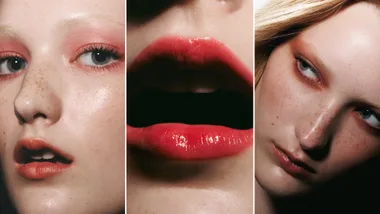More insidious than spotting a stray grey hair, the skin’s signs of ageing creep up on us slowly – you might spy concealer settling into a fine line under your eye in a way it never used to, or notice your natural glow begin to fade.
#FirstWorldProblems, if ever we heard them, but that doesn’t make them any less frustrating. “Skin ageing is inevitable: as we age, so does our skin,” says Olay senior scientist Dr Frauke Neuser. “However, there are steps you can take to ensure your skin looks its best at any age, and doesn’t age prematurely.”
Below, Dr Neuser points out the dead giveaways your skin is ageing faster than it needs to, and what to do about it.
1/ What are some of the giveaway signs that your skin is ageing prematurely?
The most common visible signs of skin ageing are fine lines around the eyes, dullness and skin tone unevenness. However, skin aging can show up very differently for different women both in terms of when it happens and how it manifests. That’s why Olay developed its Skin Advisor platform – it helps women better understand their skin’s condition and needs. The AI-powered technology determines the visible age of your skin, while also identifying problem areas across the forehead, cheeks, mouth, under-eye and crow’s feet.

2/ What’s the best thing to do about it?
Make sure your skincare regime is tailored to your individual requirements, and it sounds simple but a healthy lifestyle and protecting your skin from harsh environmental factors is crucial. UV damage is one of the biggest drivers of premature ageing, so an SPF moisturiser or sunscreen is a must every day, all year round.
3/ In terms of working out what your skin needs, how can you tell the difference between dehydrated skin and dry skin?
Both dry and dehydrated skin will be similar in their symptoms: skin feels tight and looks rough, scaly and cracked. This happens when the water content in the upper skin layers falls below a critical threshold (~10%). The difference is mainly in whether you’re experiencing these symptoms on a regular basis, or whether they appear to be more localized and temporary. From a scientific point of view we can think about dry skin as a somewhat permanent skin type or condition, while everyone can temporarily experience skin dehydration (for example due to exposure to environmental factors such as extreme cold or heat, or damage from the sun or certain substances).










